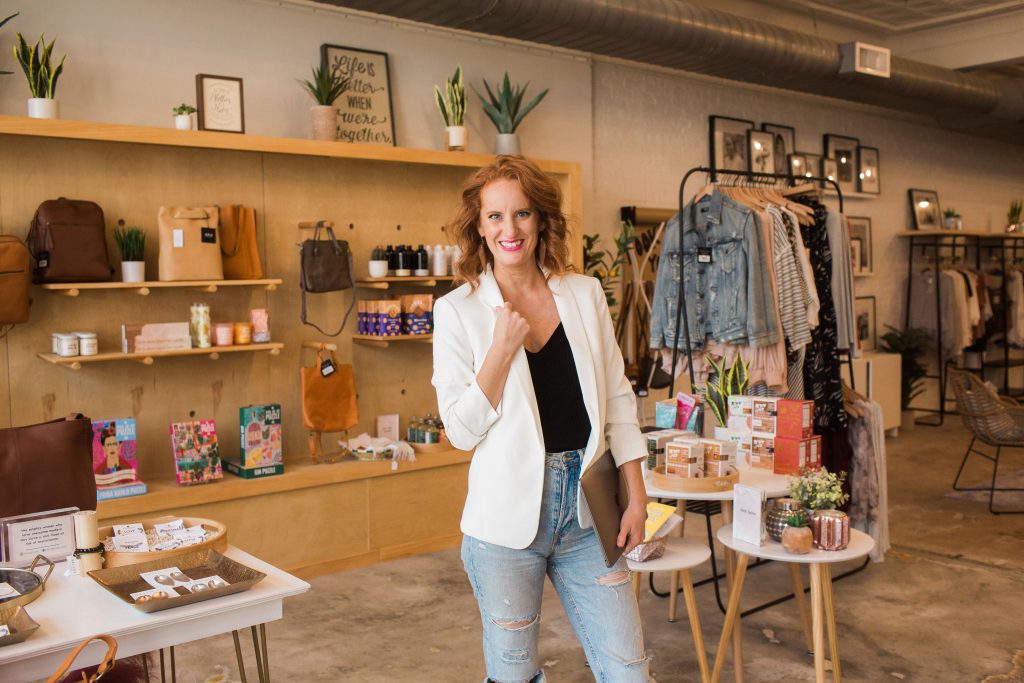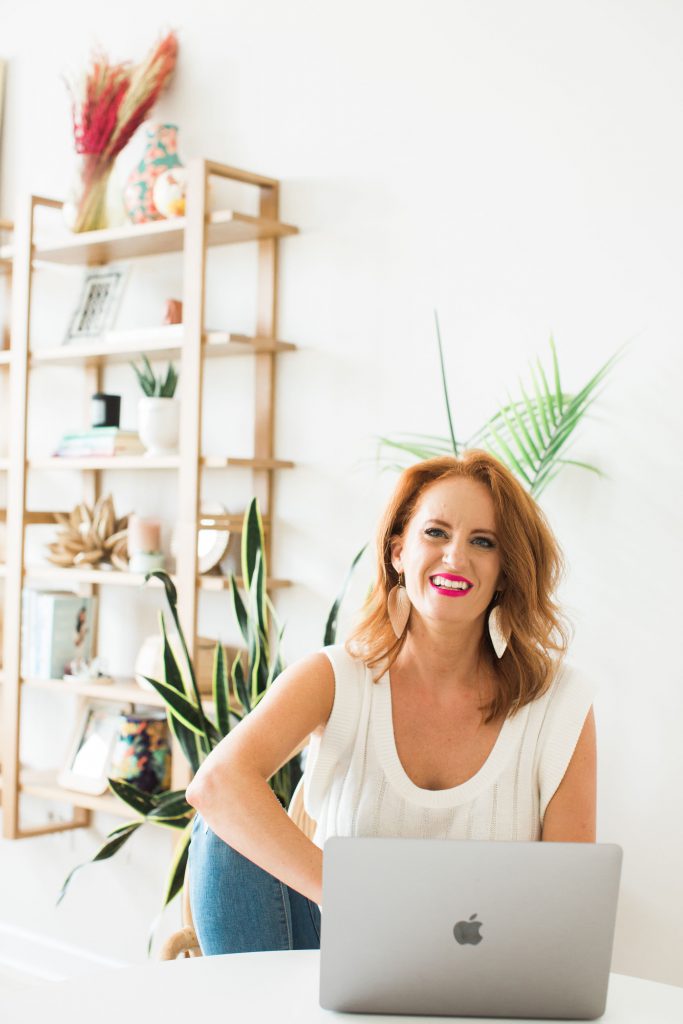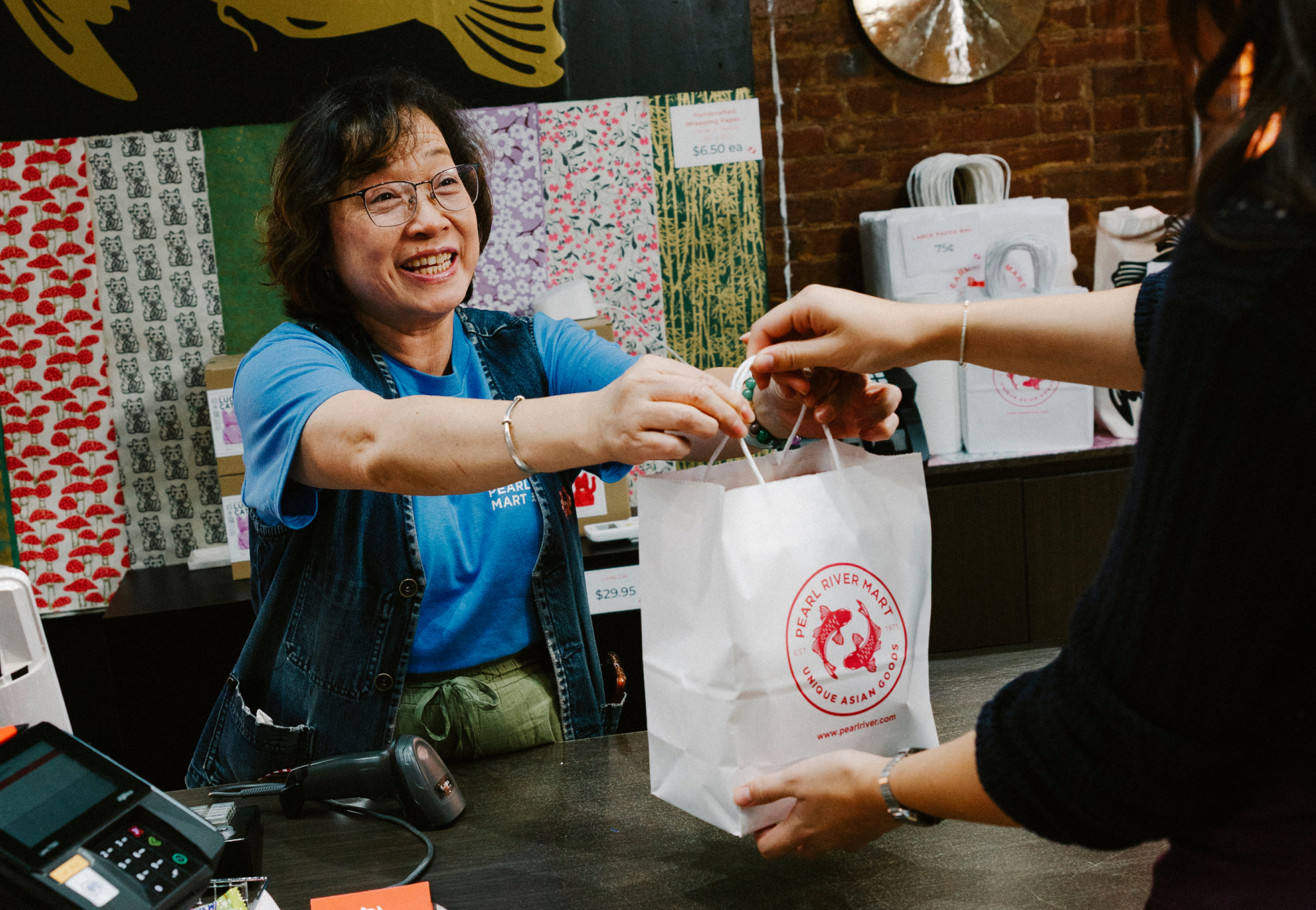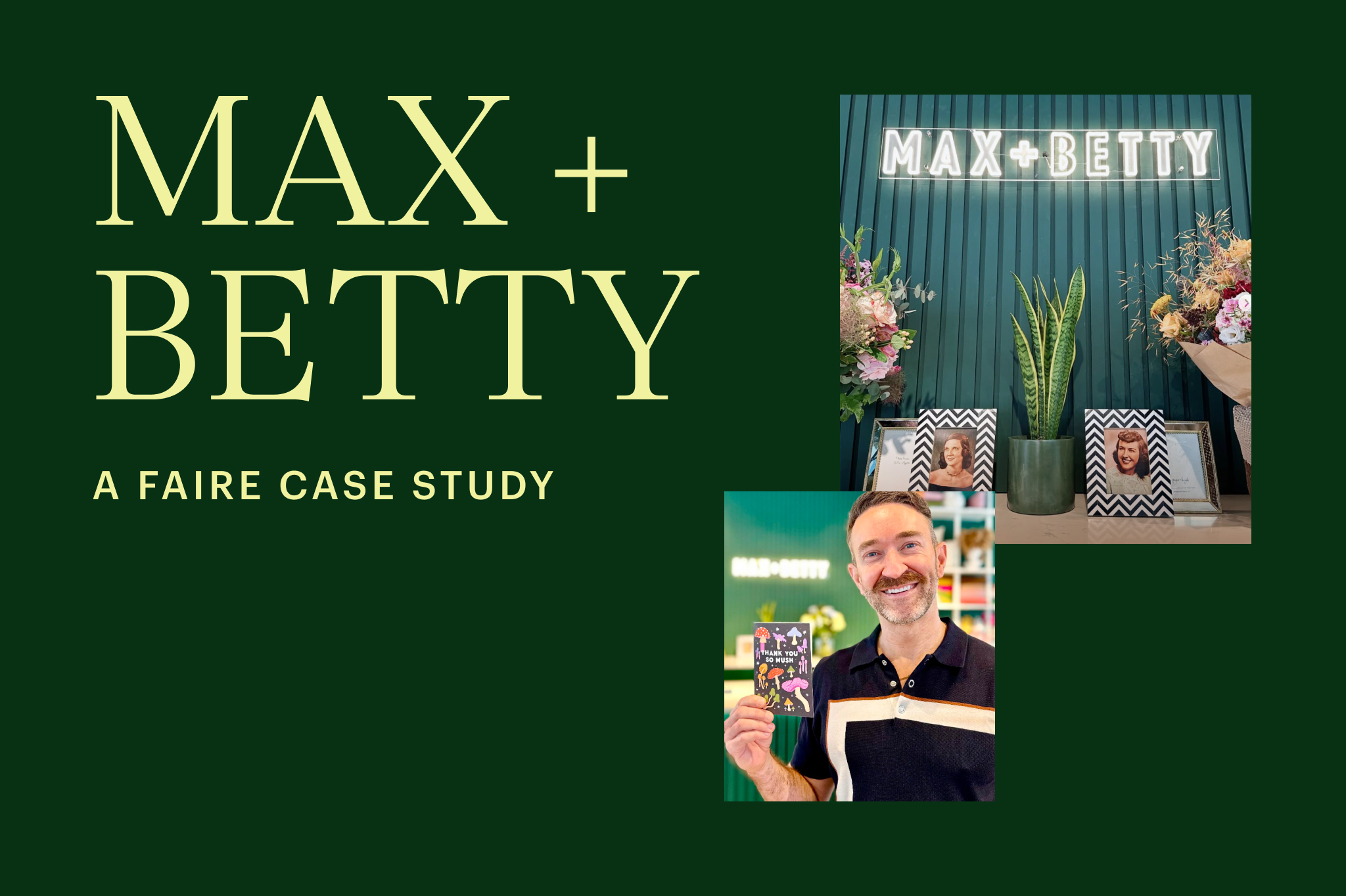

Brick & Order, Faire’s podcast for wholesale brands and independent retailers, is back for a special two-episode holiday season. In this week’s episode, we spoke with Jennifer and Veronica Zeano—the power couple behind Latina-founded brand JZD, and Emily Grey—brand coach and founder of the retail store The Flourish Market. These entrepreneurs discussed building their businesses, navigating Covid-19, and how they’re preparing for the holiday rush.
Creating meaningful communities
Jennifer and Veronica—better known as Jen and Vero—started JZD in Brownsville, Texas in 2014, just two years after they got married. With a degree in psychology, Jen tried out a handful of jobs that failed to fulfill her. In 2016, the pair decided to take the leap and open their own business, then known as Jen Zeano Designs. “We started the business with less than $200,” Jen said. “We just kept hustling until it worked.”
They started their own lifestyle brand with a mission of representing and uplifting the Latina community. “Every product we put out has something to do with our culture, our roots, and our ancestors,” Jen said. One of their first big products was their “Latina Power” tee—a product that proved incredibly popular on both their Etsy shop and on social media. People began sharing pictures of them wearing the shirt to significant occasions like graduations and sending messages of gratitude on Instagram. “I thought, this is exactly why we’re doing this. For all those immigrant kids or first-generation kids that never felt like they were represented,” Vero said. “It was like we had finally found our purpose and we really leaned into it,” Jen said.
Like Jen and Vero, Emily began The Flourish Market—based in her hometown of Raleigh, North Carolina—at a time in her life when she was ready for a change. Before beginning her retail career, Emily worked for a Swiss investment bank in London. During her free time, she volunteered for nonprofits and social enterprises, where she became passionate about fair trade products and the idea of using purchasing power for good. She eventually left her corporate career to pursue a path that would inspire people to make a positive impact on the world. “At the age of 30, I just up and quit my job,” Emily said. “People thought I was crazy.”
She returned to her hometown of Raleigh where she opened up a mini boutique on wheels in 2015. There, she sold products from makers she’d been connected with during her volunteer time in London. “All of our products were made by women around the world who had overcome extraordinary circumstances,” Emily said. Since then, The Flourish Market has evolved from a mobile shop to a concrete brick-and-mortar space selling over 200 brands that drive social change from around the globe.
Learning to adapt

Like many business owners, the Covid-19 pandemic and subsequent lockdown in 2020 forced Jen and Vero to reevaluate their plans for the year. To figure out how to pivot and adapt, they did what they’d been doing since the formation of the business—they spoke to their customers. Jen and Vero always had their customers at the heart of their business, and checking in with their needs and feedback was a regular practice. “We want our customers to feel like the brand is theirs, because it is,” Jen said. “Without them, we have nothing.” This practice guided them through the height of the pandemic, allowing them to learn what changes they’d need to make in order to be successful. They quickly scrapped their production of t-shirts in favor of the more comfortable sweatshirts that customers staying at home were now requesting. “It’s about listening to your consumers and being okay with changing it up to do what they need from you at that moment,” Jen said.
Today, they often turn to social media to interact with their audience, asking their opinion on everything from new product ideas to color and style choices. “We involve them in the entire manufacturing process,” Jen said. “We never want to create a product that they have no interest in.” By including their customers every step of the way, Jen and Vero made it through 2020 having learned how to pivot at a moment’s notice. “If 2020 taught us anything, it’s to be prepared to get creative and change everything in order to make it work,” Jen said.
At The Flourish Market, Emily has also learned the value of communicating with her customers. “The biggest thing we did to survive 2020 was to listen and listen well to our customers,” she said. Prior to the pandemic, Emily made it a regular practice to hold quarterly round tables with customers at her shop. When in-person gathering was no longer possible, she sent more frequent email surveys, asking for opinions on everything from new products customers were seeking to how to improve Flourish Market’s website. “The things they suggested were really successful for us. They made very specific asks and we turned around and showed them that not only were we listening, but we were taking action.”
Covid-19 also prompted Emily to think of ways to help brands navigate the changing retail landscape. She decided to launch a monthly group coaching program for makers and independent brand owners looking to grow their wholesale accounts. Known as The Wholesale Way, this program helps makers learn how to land new accounts and thrive, even in the face of the pandemic. “It’s been such a wonderful experience of walking hand in hand with a hundred plus brand owners and seeing them flourish in the face of really wild circumstances.”
Preparing for peak retail season

When it comes to preparing for the holiday season, Jen and Vero are taking a more careful approach to inventory planning. “In the past, we were very unprepared for the volume we were seeing,” Vero said. This year, in light of supply chain disruptions and shipping delays, the pair is taking a closer look at sales and growth during previous years in order to make more accurate predictions. “What we’re focusing on right now is making sure we have enough inventory to get us through the holiday season,” Jen said. To dictate what exactly that inventory should be, they’re staying true to the strategy that has gotten them this far—ask the customers what they want. “It’s like an open book test,” Vero said. “The answers are there, you just have to make sure to look.”
This year, customer engagement is still at the forefront of Emily’s strategy. “We’re listening to the customers and getting them excited about the holiday season by inviting them to tell us what they’re looking for,” she said. She’s also letting customers know that their support is still as important as ever this year. She sends regular emails letting customers know how they can support the business beyond simply shopping. “We’re asking for reviews, we’re asking them to bring in friends, we’re asking them to share on social media. I’m making very specific asks to let them know what would help us.”
Emily is also using the holidays as an opportunity to inspire consumers to be intentional about where they spend their money. “I’m in the business of helping them realize the power of their purchase, the power of their dollar,” she said. This year, she wants to remind customers that they can make a positive change through supporting small businesses and shopping by their values. “When I think about the holiday season, I think it’s a time when people think about doing good. This last year and a half have helped us build a stronger ecosystem of businesses working alongside each other who share hopes and dreams for a more equitable world. And I think that’s what we’re called to do this holiday season.”
Subscribe to Brick & Order, a podcast from Faire, to hear more stories from the small business community. Subscribe on Apple Podcasts, Google Podcasts, SimpleCast, Spotify, and Stitcher.





